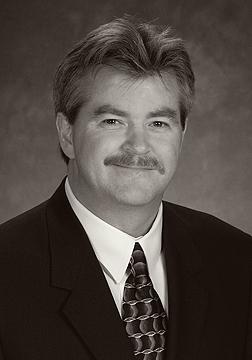The central theme of this blog is that what we perceive as a healthcare crisis is really the turmoil produced by a major paradigm shift on how healthcare will be achieved in the near future. It implies that there is an established paradigm that is undergoing a radical change as a result of forces generated from an emerging paradigm. Those forces are largely being felt at the level of the patient-physician relationship. Physicians have played a key role in this relationship for thousands of years however lately they appear to be under attack and are fighting back. In yesterday's blog I proposed that in order to drive costs down for specific services a gradual shift is being introduced from relatively high cost providers (MD/DO) to relatively low cost providers (NP/PA). This shift would culminate in the transfer of these services to a form of artificial intelligence (AI). I know this sounds strange and maybe a little paranoid but it wouldn't be the first time a highly valued member of the community was displaced as the result of a major paradigm shift.
Is it really possible for a society to phase out someone so esteemed and valued as a physician? I think American society already has done this in the past. It happened during the Industrial Revolution and that esteemed and valued member was the blacksmith. The history of the blacksmith is illustrative of what physicians can expect. A blacksmith is a person who, by definition, works with iron. They were the toolmakers and every town needed them. A communities survival depended on their presence. In the colonial days 90% of the population were farmers. In order to work the land you needed tools. The blacksmith forged these tools and just as importantly repaired them when they broke. They enabled the very existence of an agrarian society. Henry Wadsworth Longfellow eulogized these tradesman in his famous poem,
The Village Blacksmith.
Toiling,---rejoicing,---sorrowing,
Onward through life he goes;
Each morning sees some task begin,
Each evening sees it close;
Something attempted, something done,
Has earned a night's repose.
Thanks, thanks to thee, my worthy friend,
For the lesson though hast taught!
Thus at the flaming gorge of life,
Our fortunes must be wrought;
Thus on its sounding anvil shaped,
Each burning deed and thought!
As the Industrial Revolution gained momentum the blacksmith was favored heavily as the advancements in the iron industry progressed. His earnings and productivity gained early on as his skills developed. These same skills were then used to build the machines that made the tools and other products he formerly produced with his hammer, anvil and fire. This was also his undoing. I have heard it said it was the mass production of automobiles introduced by Henry Ford that put the majority of blacksmiths out of business for good. Going from the horse and buggy to the horseless carriage was another paradigm shift to contend with but I think the writing was on the wall long before Mr. Ford opened shop in Detroit. I think it began when the blacksmiths helped build the very machines that would one day deliver goods and services for which they were once highly valued. It can happen again.
If we are undergoing a paradigm shift in healthcare I suspect it will be the physician whose time has peaked. So what will come of us? If we ultimately turn over the intellectual services we provide to patients to artificial intelligence then what is left for us to do? I don't have the long-term answer but I think there will still be plenty to do in the short-term to keep us busy. Such as:
1) We will continue to build, refine and work with the AI that will serve the needs of patients.
2) We will continue to provide those services where AI cannot function as safely or efficaciously.
3) We will continue to provide the human contact that cannot be embedded in the algorithms of AI.
4) We will continue to adapt our skills and talents to new enterprises as the emerging paradigm reveals itself.
5) We will continue to teach, inspire, innovate, laugh and enjoy life more than ever.
Subscribe to:
Post Comments (Atom)

No comments:
Post a Comment